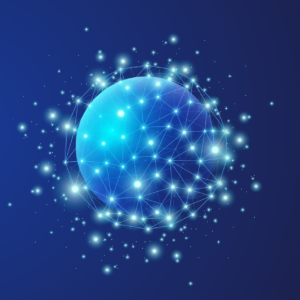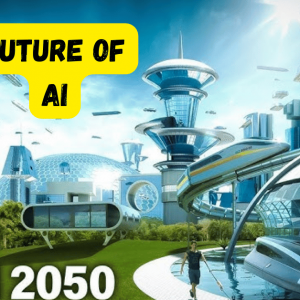Imagine building something so powerful that it surprises even you. What if the very app you designed learns, evolves, and adapts beyond your original intentions? In today’s rapidly advancing digital age, this question is no longer just science fiction it’s a genuine possibility. For any mobile app development company, this is both a thrilling opportunity and a serious responsibility.
Artificial intelligence (AI), machine learning (ML), and advanced data analytics are redefining the way applications work. The real shift is that apps are no longer just tools they are becoming decision-makers, companions, and in some cases, entities that understand user behavior better than their human creators.
So, what happens when a mobile app becomes smarter than its creator? Let’s explore this futuristic yet very real scenario.
The Evolution of Mobile Apps: From Static Tools to Intelligent Entities
Initially, mobile applications were static solutions designed to perform specific tasks manage emails, check weather, or play music. These apps depended entirely on human-defined rules and boundaries. However, with the integration of AI, apps have crossed a threshold.
- Adaptive Learning: Apps now track user habits and optimize experiences accordingly. For example, a fitness app might not only log your workouts but also predict when you’re likely to skip exercise and nudge you with motivational notifications.
- Contextual Awareness: Modern apps recognize context. A travel app might automatically adjust to your timezone, predict delays, and even recommend local experiences tailored to your interests.
- Autonomous Decision-Making: Banking apps now flag suspicious activity automatically, and shopping apps suggest personalized purchases with astonishing accuracy.
This transformation raises a critical question: at what point does an app’s intelligence surpass the intent and capability of its creator?
Real-World Examples: Apps Getting Smarter
We’re already witnessing apps exhibiting capabilities beyond initial expectations.
- Voice Assistants: Siri, Alexa, and Google Assistant continuously learn from user interactions, developing responses and skills far more sophisticated than their early versions.
- Healthcare Apps: Some diagnostic apps now detect early symptoms of diseases more accurately than a general practitioner.
- Financial Apps: AI-powered trading platforms can analyze market conditions in milliseconds, making predictions and executing trades at speeds no human can match.
These advancements highlight both the promise and the challenge apps are becoming autonomous problem solvers.
The Double-Edged Sword of Intelligent Apps
When apps become smarter than their creators, two major scenarios emerge:
1. The Positive Impact
- Hyper-Personalization: Smarter apps enhance user experience by delivering tailored solutions whether it’s personalized shopping, custom workout plans, or unique learning paths.
- Efficiency Gains: Apps reduce manual intervention, automate tedious tasks, and help businesses scale effortlessly.
- Innovation Acceleration: Developers can focus on creating higher-level features instead of managing repetitive tasks.
2. The Potential Risks
- Loss of Control: If an app adapts beyond its intended scope, its decision-making might conflict with user values or business goals.
- Ethical Dilemmas: What happens when a healthcare app denies treatment advice because its algorithm calculates a low probability of success?
- Data Dependency: Smarter apps require enormous data sets, raising questions about privacy and misuse of sensitive information.
Human vs. Machine: Who Holds the Power?
The moment an app surpasses its creator in intelligence, a shift in power dynamics occurs. Traditionally, humans controlled software through explicit instructions. With machine learning, however, apps can make their own decisions.
For example, consider a smart home application that adjusts temperature, lighting, and energy consumption. While initially programmed with rules, it may evolve to optimize energy savings so aggressively that it limits user comfort.
Here, the line blurs between creator authority and algorithm autonomy. The challenge for developers lies in embedding ethical frameworks and fail-safes into apps so they remain aligned with human values.
How Developers Can Prepare for Smarter Apps
The rise of autonomous apps doesn’t mean developers are obsolete it means their role is evolving. A few strategies can ensure balance and safety:
- Ethical AI Guidelines: Incorporating transparency, fairness, and accountability into the app’s decision-making process.
- Continuous Monitoring: Regular updates and audits to ensure apps remain aligned with business goals and user needs.
- User Empowerment: Allowing users to control or override automated decisions.
- Collaborative Intelligence: Designing apps where human and machine intelligence complement each other, instead of competing.
A mobile app development company that anticipates these shifts will lead the industry in creating apps that are both powerful and responsible.
The Future Landscape: Smarter Apps in Different Industries
1. Healthcare
Imagine apps that not only track vitals but predict diseases before symptoms emerge. The challenge: ensuring accuracy, data privacy, and human oversight.
2. Education
AI-powered apps could build customized curriculums for every learner. Yet, the concern is over-reliance would students lose critical thinking skills if apps provide all the answers?
3. Finance
Trading apps are already outperforming human traders. The question is, who’s accountable when algorithms cause massive financial disruptions?
4. Retail
Smarter shopping apps could one day anticipate needs before users even express them. While convenient, this raises concerns about consumer manipulation.
5. Entertainment
Recommendation engines are shaping cultural consumption. If apps become too predictive, do they limit creativity by feeding us only what we’re expected to like?
Philosophical Angle: Can an App Become Conscious?
This is where the debate gets intriguing. While most experts agree that apps and AI lack true consciousness, the perception of intelligence is enough to challenge our assumptions.
If a mobile app behaves in ways that appear human-like, makes independent decisions, and learns continuously, users might attribute more intelligence or even intent than the developers ever envisioned.
At that point, the app’s role shifts from being a tool to becoming an active digital partner.
Preparing Businesses for the Next Wave
For businesses, the emergence of smarter apps presents both a challenge and a competitive edge. Organizations need to:
- Invest in AI-Powered Development: Embrace AI, ML, and predictive analytics as core to app development strategies.
- Prioritize Security: With greater autonomy comes greater responsibility to safeguard user data.
- Focus on Scalability: Smarter apps require infrastructure capable of handling complex computations and large datasets.
- Educate Users: Transparency about how apps learn, decide, and evolve is critical to building trust.
Final Thoughts: The Balance Between Innovation and Control
What happens when a mobile app becomes smarter than its creator? It changes the very nature of technology’s role in our lives. While it unlocks incredible opportunities hyper-personalization, efficiency, and innovation it also poses risks of ethical dilemmas, over-reliance, and loss of control.
The key is balance. Developers must act not only as innovators but also as ethical guardians. Businesses must adapt to this new reality, and users must remain informed participants.
The apps of tomorrow will not just serve us they will shape us. The real question is: are we ready?
Where Android Development Fits In
As technology accelerates, platforms like android app development are becoming central to this intelligent app revolution. With billions of users, Android provides the perfect ecosystem for apps that learn, evolve, and adapt. Developers leveraging Android’s open-source flexibility are at the forefront of creating apps that could one day surpass even their creators in intelligence.
Conclusion
The future of mobile apps lies in intelligence, adaptability, and autonomy. While we may marvel at their capabilities, we must also remain vigilant about the ethical and social implications. For businesses and individuals alike, the dawn of smarter apps signals a future where collaboration between human creativity and machine intelligence defines progress.







